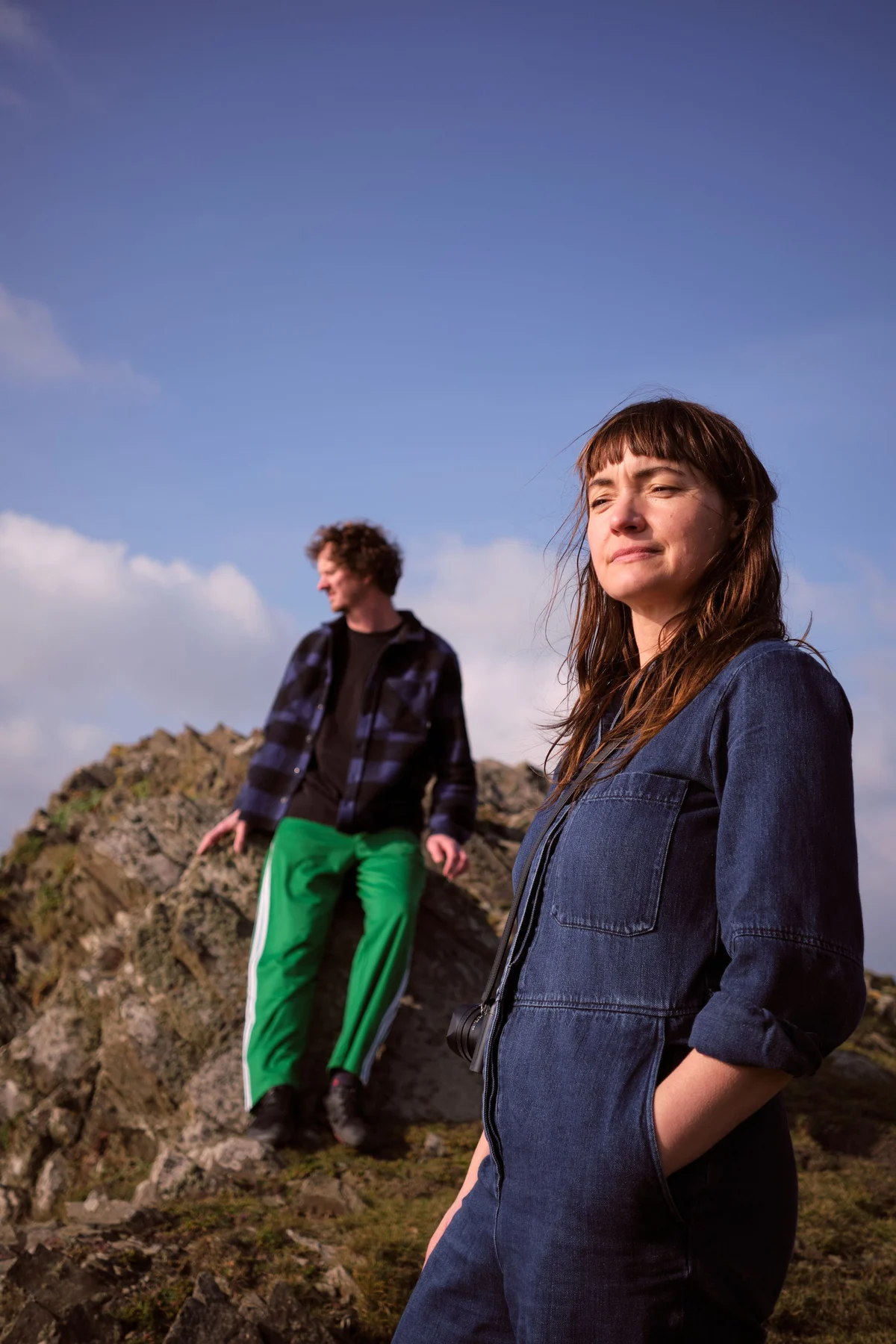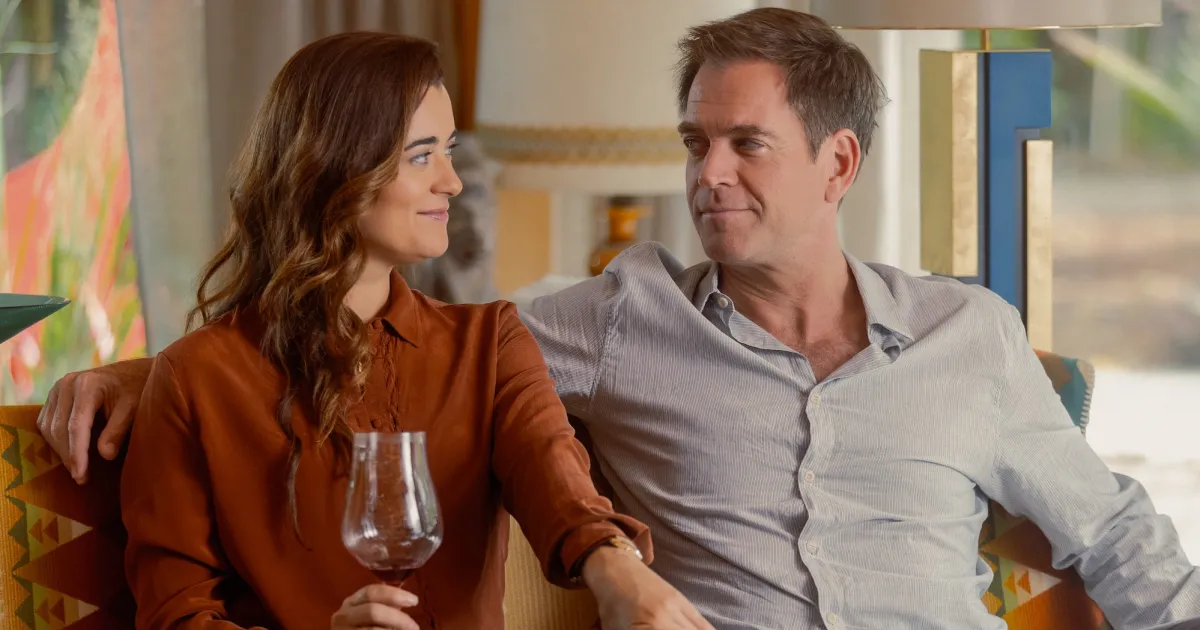Meet the former Londoners who left Hackney to build a creative community on the north Devon coast
By The Standard
Copyright standard

On a quiet stretch of Devon’s dramatic coastline, a 17th-century farmstead has been restored by two former Londoners, who saw an opportunity to create their dream family home – and then some.
In fact, Henry Trew and Ania Wawrzkowicz have big ambitions to build an entire creative ecosystem in this striking rural outpost, free from the constraints of the expensive capital.
Finding themselves in the region’s red rock cliffs and sweeping, cinematic landscapes was part chance, partly by design.
“I grew up in Poland, near lakes and forests — and, after so many years in London, I wanted to be up-close with that kind of nature again,” explains Wawrzkowicz.
So, in 2017, the couple put their careers as a cultural events founder and artist on pause, packed up their belongings, and hit the road.
Swapping the streets of Hackney for Sri Lanka, Spain, New Zealand, and Portugal, the couple travelled for the better part of a year.
Spending time in all kinds of retreats, and sitting down with the visionaries behind them, it soon became a research trip — for their own project.
In the end, Trew and Wawrzkowicz found a calling closer to home. “Everywhere we stayed had its own tensions and challenges, and there was something we really missed about the UK,” says Trew.
Back on British soil in 2018, they rented a property in Bodmin, Cornwall, before a scroll on Rightmove took them to the quieter — and comparatively affordable — coast of north Devon.
The couple were looking for a place to call home, but with land they could transform into their very own creative experiment.
Wawrzkowicz, an artist and photographer, and Trew, the founder of an enterprise finding pathways for young people into the creative economy, had a vested interest in the cultural industries.
They returned from their travels with the idea for ‘Praktyka,’ Polish for ‘practice’ — a place where local and visiting creatives could make and restore.
With plans to offer a programme of workshops — painting, sketching, jewellery-making, meditation, surfing, and wild swimming, to name but a few — the perfect plot, near the town of Bideford, eventually surfaced.
They put in an offer the same day they viewed it and successfully bought the property for £650,000.
Choosing an architect to support the transformation of the farmstead was the easy part. While in New Zealand, the couple had stumbled on a book, The Anatomy of Sheds, which contained the family home of Niall Maxwell, founder of architecture studio Rural Office.
So they reached out, and Maxwell was quick to jump on board.
“From our first conversation, it was evident that Ania had an incredible creative eye,” he says. “Our collaboration was one of the best kind — where we still talk and we’re friends today.”
Sharing an ambition to design with the local landscape front of mind, responsible, eco-conscious choices were non-negotiable from the start — at a notably higher cost than alternatives. Renovations total £250,000.
With historic stone walls a metre thick, no functioning heating, and an underground stream that had to be redirected, working with the site’s primary existing structure — a farmhouse, to become the growing family’s home — proved an architectural challenge.
But Trew and Wawrzkowicz were willing to take their time and get it right — choice by choice, piece by piece.
“We loved Niall’s contextual approach to his home in rural Wales, choosing sustainable materials that honoured its environment,” says Trew.
That philosophy sat well with Wawrzkowicz and her understanding that every household object, from lamp to light switch, should be thoughtful — even beautiful — and unquestionably deliberate.
Joining the spectacularly-presented farmhouse, where the couple live with their six-year-old son, Ziggy, a new cabin, glamping dome, and converted barn — all by Rural Office — can be booked for retreats in nature, creative or otherwise.
They sit comfortably alongside a second ‘Black Barn,’ renovated by the couple themselves for large group stays, as well as Wawrzkowicz’s studio, where workshops take place.
Stays start at £130 a night, while workshops run year-round with prices starting at £150 and cater to beginners and professionals alike — either one-on-one or group. Three quarters of Praktyka’s guests work in the creative industries.
“Our vision was for a family of buildings, that each allowed its resident a different living experience,” Maxwell explains. “But it was important that every structure gave the impression it had come from the same author — penned in a common language.”
Spaces — new and old, recent and recovered — are brought to life with care and character, years of history peeled back and restored. Drawn from the local vernacular, every choice is with intention.
Natural finishes meet bold colour choices, guided by long-time friend Despina Curtis, founder of colour consultancy Etté. A naturally-occurring mineral pigment, Bideford Black, became focal — mined for over two hundred years in nearby Bideford and prized for its rich, inky black. The pigment complements tones drawn from Devon’s triassic red rock coast.
It is paired with deep, earthy greens that combine to “blur the boundaries between inside and out,” while views of trees, skies, or Exmoor in the distance, are framed and revealed, rather than blocked. Wild meadows have been restored, and secret gardens allowed to emerge.
But even now, their project is far from complete. On a mission to bring culture to north Devon’s coasts, Praktyka will launch an artist residency — giving creatives new opportunities to practice in retreat.
First though, it’s time for a wild swim before sundown.



